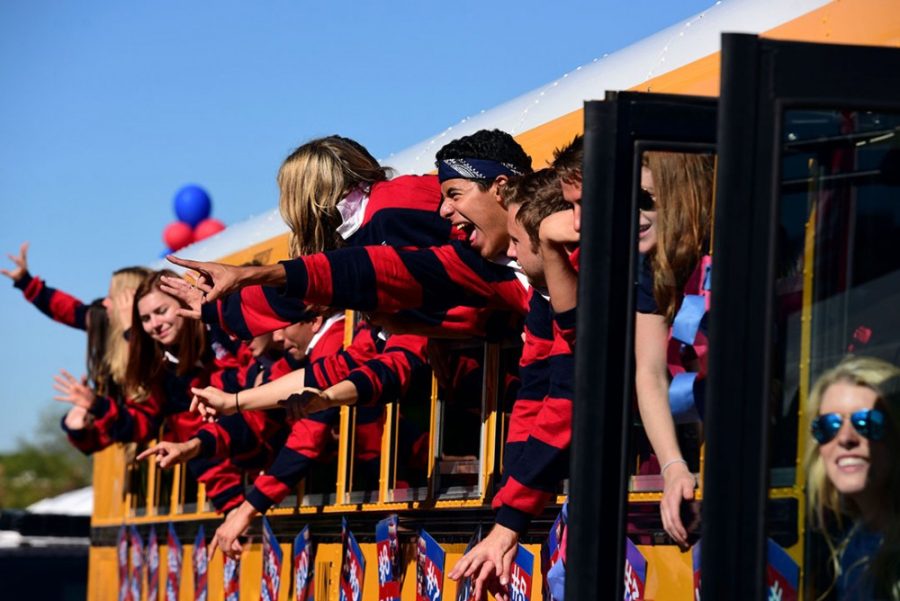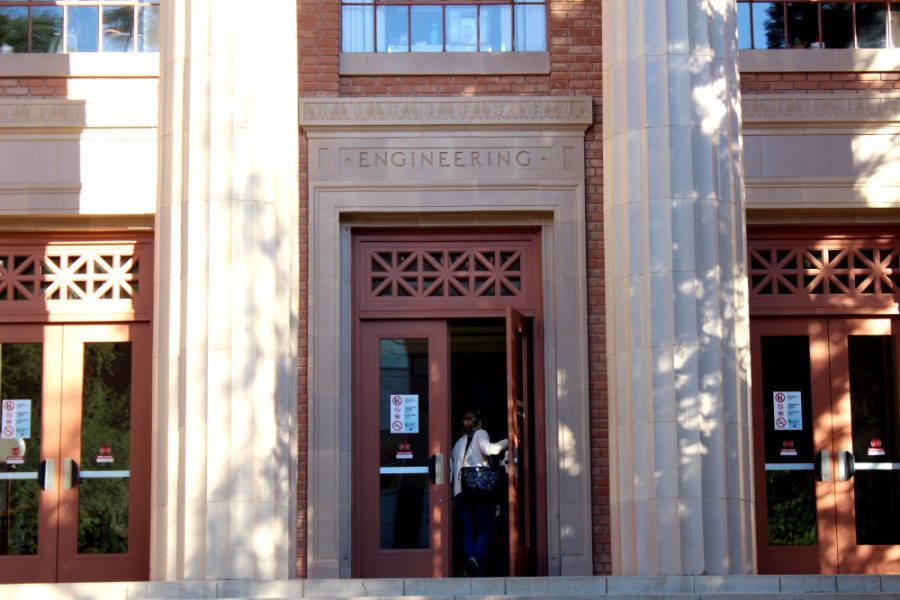Homecoming week is a time of many fun and exciting events, but it’s also a time of increased risk. From drinking enough water to watching where you step, here are three tips on how to make sure you stay safe this week.
1. Be aware of your surroundings
The most important step you can take is to simply be aware of your surroundings, said Nick Sweeton , interim executive director of resident life .
“It’s not that different from any other weekend,” Sweeton said. “Mostly, it’s reports of people who don’t reside in the buildings being in the buildings, looking for restrooms. Don’t let unknown people follow you in.”
Chief of University Emergency Medical Services Samantha Roberts had the same advice, as well as making sure you look where you’re walking, as tripping is the most common injury call EMS gets.
“Think of your own safety first,” Roberts said. “Take responsibly for yourself, and watch your kids, too.”
Sergeant Filbert Barrera of the University of Arizona Police Department said that with the influx of people on campus, be aware that it will take longer than usual to get around, and watch out for cars with all the extra traffic.
“Plan extra time to get here, because parking will be at a premium,” Barrera said. “Homecoming is even bigger than family weekend because all the alumni come back as well.”
Barrera also suggested downloading the LiveSafe app, which allows users to text for police aid. The app is monitored all the time, and Barrera said it can be useful for situations where picking up the phone to call police isn’t possible.
2. Be responsible when consuming alcohol
Roberts said that while tripping is the most common injury call, alcohol-related incidents far exceed it.
“People not being responsible with alcohol consumption, that tops the charts,” Roberts said.
She suggests that if you are planning on drinking, make sure you plan ahead, whether that means making the choice to limit how much you consume or simply having a plan to ensure someone else is looking out for you.
“Have a designated person, someone to have your back if you’re not planning on being responsible,” Roberts said.
Barrera also suggested planning to take a cab, and watching out for friends to prevent drinking and driving.
“The tailgate area is bigger and busier, and with a later game, there’s more pre-gaming activities happening,” Barrera said. “Take care of each other. Be respectful.”
3. Account for the weather
Even in October, temperature can soar. Barrera said that this can be a problem, especially when people are drinking alcohol.
“There’s always an issue with people getting dehydrated,” Barrera said.
Roberts said that often, people don’t think of heat when they prepare for the game.
“Heat is a consideration we face every season but winter,” Roberts said. “Hydrate with things other than alcohol and soft drinks. Hydrate with water.”
She also suggested wearing sunscreen and protective clothing.
“You have to think differently in the desert,” Roberts said. “Be responsible. That encompasses everything you need to consider.”
All in all, Roberts said that the campus will be well-prepared no matter what.
“The 911 crews will be well-staffed and Southwest Ambulance c will have crews on campus for the tailgating,” Roberts said. “We provide ample coverage for campus every day, so we continue to do so and prepare for a higher number of calls.”
Barrera said that a unified command system will be in place, meaning all the heads of the various safety departments and organizations will be in one room. This allows them to efficiently direct resources where they’re needed.
“We have so many huge events that we’re used to doing this kind of work,” Barrera said. “We want people to come here and feel safe. If they even think they need police, we want them to call. Even if it turns out that we’re not needed.”
While Barrera said there’s not an increase in crime compared to a normal school day or game day, the University of Arizona Police Department will still have extra officers doing alcohol abatement, enforcing DUIs and patrolling the residence halls and Highland Market.
With the increased coverage, Roberts had one final tip to remember: “All the crews, they’re here for your safety, not to make the weekend bad for you.”









